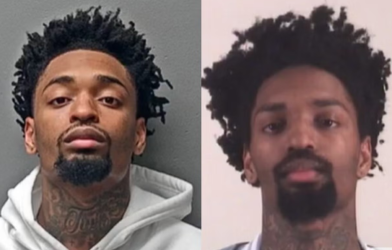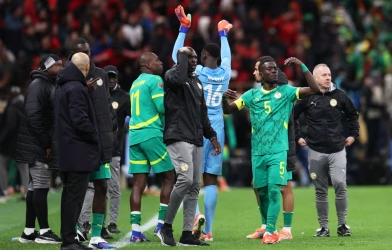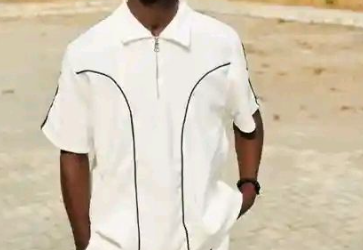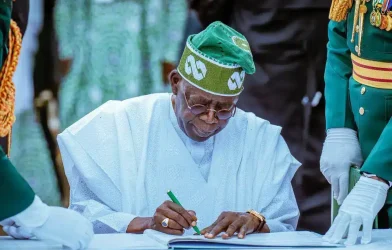210
…By Paul Ejime
Mali’s junta leader Col Assimi Goita has pardoned 49 Ivorian soldiers jailed last week in Bamako following their arrest last July on accusation of conspiring against the Malian government.
Three of the soldiers, women, who had earlier been freed, were last week sentenced to death in absentia, while the other 46 were sentenced to 20 years each and fined USD3,000.
Mali had accused the 49 soldiers of acting as mercenaries, and had demanded swapping them with some high profile political fugitive Malians in Cote d’Ivoire.
But Cote d’Ivoire insisted the soldiers were part of a United Nations peacekeeping mission in Mali, MINUSMA.
Mali Government spokesman Col Abdoulaye Maiga announced on Friday that Transitional President Goita has now granted amnesty to all 49 soldiers.
He described the move as an “independent decision” and a “pan-Africanist gesture,” symbolising Goita’s “commitment to preserving fraternal relations” with Mali’s neighbouring country.
But Maiga did not say when the soldiers would be released from prison.
It is believed that the presidential pardon is a product of a deal by the two countries with the Mali junta apparently using the amnesty to win badly needed external support.
Nigeria’s former President Goodluck Jonathan had been mediating the Mali crisis on behalf of the regional group, ECOWAS, following the Goita-led first coup in August 2020.
Goita’s second coup in 2021 and his delay to return the country to constitutional rule forced ECOWAS to impose tough sanctions on Mali, which had been lifted.
But Mali and two other member States, Guinea and Burkina Faso, which are also under military rule remain suspended from ECOWAS.
Togo’s President Faure Gnassingbe, who has also been enlisted by the Bamako junta as a second mediator, visited Mali on Thursday before proceeding to Cote d’Ivoire.
ECOWAS had given the Mali junta until January 1st 2023 to free the Ivorian soldiers or face further sanctions.
The soldiers were convicted by a Malian special court two days to that deadline.
Mali is fighting insurgency by terrorists, Islamic jihadists and Toureg separatists in its North and Central regions.
Diplomatic relations have also strained between the junta government and France, the former colonial power in Mali resulting in Paris pulling out French forces from Mali after the junta expelled Paris’ Ambassador from Mali.
Deadly terrorist attacks have continued in Mali and several neighbouring countries in West Africa and the Sahel region, which became a haven for various armed groups after the elimination of Libyan leader Muammar Gaddafi in 2011.












Comments are closed